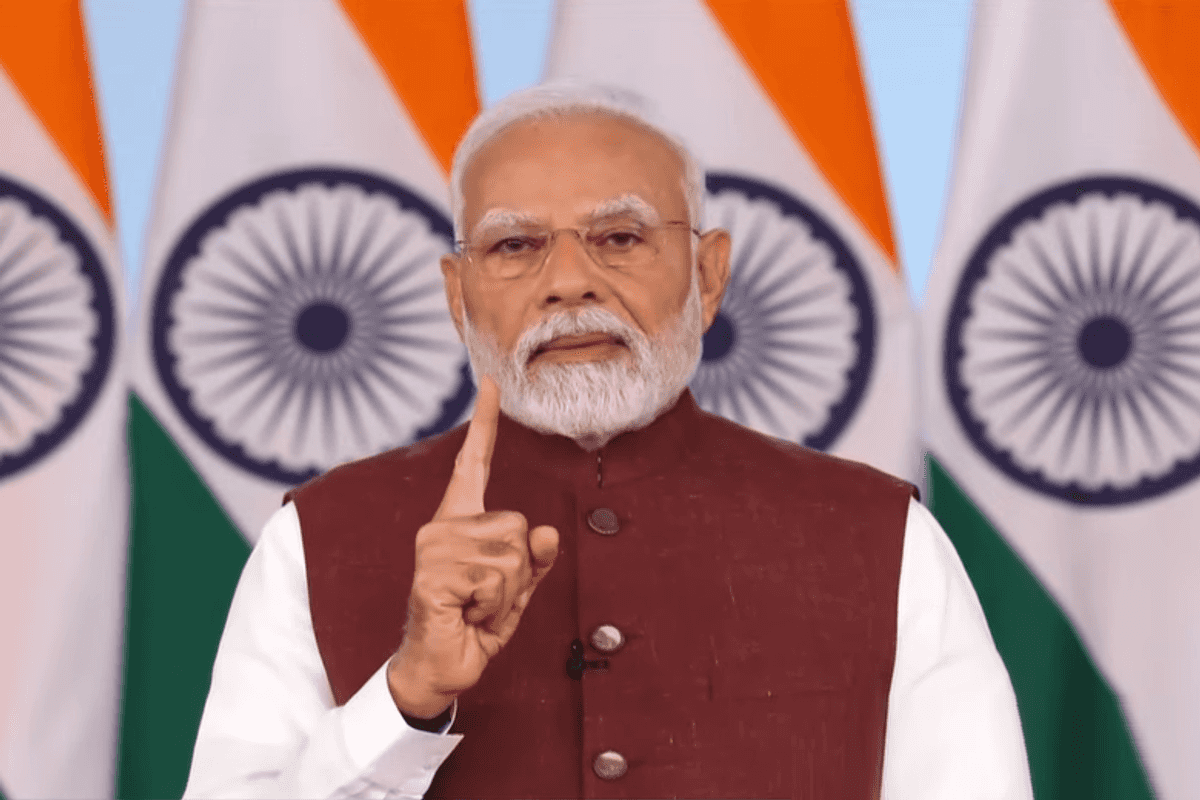News Desk
The News Desk provides timely and factual coverage of national and international events, with an emphasis on accuracy and clarity.

Modi said on Monday that India would not tolerate any form of nuclear blackmail, reiterating his country's stance on combating terrorism.
Screengrab
Indian Prime Minister Narendra Modi on Monday issued a warning to Pakistan, saying that India would not tolerate any form of ‘nuclear blackmail’, as tensions between the two nuclear-armed rivals showed signs of easing after days of deadly cross-border violence.
In his first televised address since cross-border hostilities erupted last Wednesday, Modi doubled down on India’s hardline stance against terrorism, declaring that “terror and talks cannot go hand in hand” and invoking the long-standing metaphor: “blood and water cannot flow together.”
His remarks came as a fragile ceasefire — announced over the weekend and credited by U.S. President Donald Trump as a product of American mediation — appeared to be holding after four days of the fiercest clashes between India and Pakistan since the Kargil conflict of 1999.
The violence saw the exchange of airstrikes, missiles, drones, and artillery fire across the border.
Speaking at the White House on Monday, Trump claimed U.S. efforts had averted a catastrophe. “We stopped a nuclear conflict... millions could have died. I’m very proud of that,” he told reporters.
Modi also issued a pointed warning: "If another terrorist attack against India is carried out, a strong response will be given."
The conflict followed an April 22 attack on tourists in Indian-administered Kashmir which killed 26 civilians.
India accused Pakistan of backing the attack, but Islamabad denied involvement.
‘India’s stand is very clear’
The alarming spiral towards all-out war began before dawn on Wednesday, when India launched missile attacks destroying what it called "terrorist camps" in the Pakistan-administered part of Kashmir.
Each side then accused the other of launching waves of warplane and drone strikes, as well as missile and artillery bombardments that killed at least 60 people on both sides.
"If Pakistan wants to survive, it will have to destroy its terror infrastructure," Modi said. "India will strike with precision and decisiveness against the terrorist groups thriving under the cover of nuclear blackmail."
He also pointed to India's military operations, confirming that the Indian Army was given a "free hand to bury the terrorists."
According to Modi, India's recent strikes targeted "terrorist hideouts and training centers" in Pakistan, resulting in the deaths of more than 100 terrorists.
Pakistan, he noted, had called for de-escalation and sought to reduce tensions.
The country had also contacted India's military operations chief on May 10. However, Modi clarified that while military action against Pakistan had been paused, India would be closely monitoring Pakistan's behavior.
"This is India’s policy against terrorism," he said, adding that India had drawn a new "red line."
Both sides claim success
Top India and Pakistan military officials held briefings late Sunday with each claiming the upper hand and warning they were ready to respond if there were fresh attacks, according to AFP.
"We have delivered the promise we made to our people", Pakistan's military spokesman Lieutenant General Ahmed Sharif Chaudhry said, calling it a "success on the battleground".
"We have thus far exercised immense restraint so far and our actions have been focused, measured and non-escalatory," said Indian Lieutenant General Rajiv Ghai.
Pakistan claimed to have downed five Indian fighter jets -- something New Delhi has not commented on.
Divided Muslim-majority Kashmir is claimed in full by both countries, who have fought several wars over the territory since their independence from Britain in 1947.
Senior officers from Pakistan and India were reported to have spoken on Monday in order to further secure the ceasefire.
With additional input from AFP







Comments
See what people are discussing